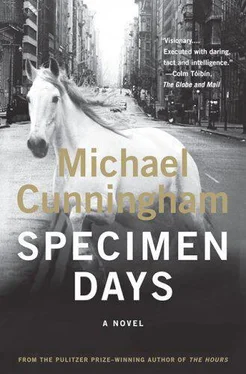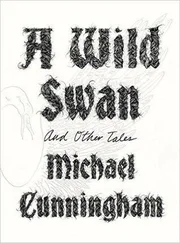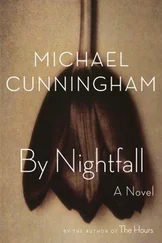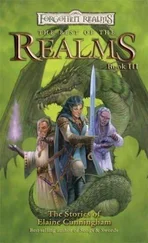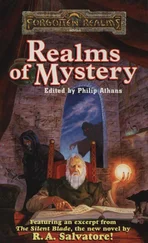Michael Cunningham - Specimen Days
Здесь есть возможность читать онлайн «Michael Cunningham - Specimen Days» — ознакомительный отрывок электронной книги совершенно бесплатно, а после прочтения отрывка купить полную версию. В некоторых случаях можно слушать аудио, скачать через торрент в формате fb2 и присутствует краткое содержание. Город: New York, Год выпуска: 2005, ISBN: 2005, Издательство: Farrar, Straus and Giroux, Жанр: Современная проза, на английском языке. Описание произведения, (предисловие) а так же отзывы посетителей доступны на портале библиотеки ЛибКат.
- Название:Specimen Days
- Автор:
- Издательство:Farrar, Straus and Giroux
- Жанр:
- Год:2005
- Город:New York
- ISBN:0-374-70515-1
- Рейтинг книги:4 / 5. Голосов: 1
-
Избранное:Добавить в избранное
- Отзывы:
-
Ваша оценка:
- 80
- 1
- 2
- 3
- 4
- 5
Specimen Days: краткое содержание, описание и аннотация
Предлагаем к чтению аннотацию, описание, краткое содержание или предисловие (зависит от того, что написал сам автор книги «Specimen Days»). Если вы не нашли необходимую информацию о книге — напишите в комментариях, мы постараемся отыскать её.
Specimen Days — читать онлайн ознакомительный отрывок
Ниже представлен текст книги, разбитый по страницам. Система сохранения места последней прочитанной страницы, позволяет с удобством читать онлайн бесплатно книгу «Specimen Days», без необходимости каждый раз заново искать на чём Вы остановились. Поставьте закладку, и сможете в любой момент перейти на страницу, на которой закончили чтение.
Интервал:
Закладка:
The bowl was good, then. But he had only twenty-eight cents left, which was not enough for a week’s food for three. Still, he had a gift to take to Catherine. He would think about food and money later.
He returned to Fifth Street and knocked at the door until the tiny woman opened it. She wondered that he was back again but admitted him more easily, because he was becoming visible to her. She warned him again that there was to be no mischief. He agreed and mounted the stairs to Catherine’s apartment.
Catherine answered the door. She seemed neither pleased nor sorry to see him. He wondered if he’d changed again, if he was unrecognizable to her again, though he wore the same clothes and the same dirt he’d worn yesterday.
He said, before he could help himself, “Alone far in the wilds and mountains I hunt.”
She said, “Hello, my dear. How are you?” Tonight she wore her new face, the wearied one.
Lucas heard a sound from within the apartment, a strange sort of wailing laughter that sounded like Alma’s. It was followed by a man’s voice, deep and urgent, saying something undecipherable.
Catherine stepped out into the hallway, closed the door behind her. “Lucas,” she said, “it’s not a good time to call, just now.”
“But I’ve brought you something,” he answered.
He produced the bowl. He extended it toward her on outstretched palms.
She looked at it uncertainly, as if she could not quite discern its nature. Lucas found he couldn’t speak, not as himself or as the book. He was the bowl and his hands. He was only that.
Presently she said, “Oh, Lucas.”
Still he couldn’t speak. He was a bowl and a pair of hands offering a bowl.
“You mustn’t,” she said.
He answered, “Please.” It was what he had to say.
“How have you come by this?”
“I bought it. For you. I was paid today.”
It was not as he’d expected. He had imagined her glad and grateful.
She bent toward him. She said, “It’s sweet of you. But you must return it.”
“I can’t,” he said.
“Did you pay for it? Truly?”
She suspected he’d stolen it, then. He could think of nothing to tell her but the truth.
“I bought it from a man on Broadway,” he said. “He was selling them from a tray.” It seemed better to have bought it from a man with a tray. It seemed truth enough.
“My dear. You can’t afford this.”
He trembled, filled with rage and confusion and blind, desperate hope. Somehow he’d made himself poorer by bringing her a gift.
“Please,” he said again.
“You’re the sweetest boy in the world. You truly are. And tomorrow you must return it to the man on Broadway and get your money back.”
“I can’t,” he said.
“Would you like me to go with you?”
“What is a man anyhow? What am I? And what are you?”
“Please, Lucas. I’m touched, I truly am. But I can’t accept it.”
“The man is gone.”
“He’ll return tomorrow.”
“No. This was his last bowl. He said he was going away.”
“Oh, poor boy.”
How could he tell her, what could he say, here in the dark of the hallway (where the goat’s skull still grinned), holding out to her the only treasure he could find, a treasure she didn’t want?
He said, “The spinning-girl retreats and advances to the hum of the big wheel.”
“Hush. Hush, now. You’ll disturb the neighbors.”
He hadn’t meant to speak so loudly. He didn’t mean to speak again, more loudly still.
“The bride unrumples her white dress, the minute-hand of the clock moves slowly.”
“Stop. Please. Come inside, you mustn’t rant like this in the hallway.”
“The prostitute draggles her shawl, her bonnet bobs on her tipsy and pimpled neck. The nine months’ gone is in the parturition chamber, her faintness and pains are advancing.”
Catherine paused. She looked at him with a new recognition.
“What did you say?”
He didn’t know. She had never before seemed to hear him when he spoke as the book.
“Lucas, please repeat what you just said.”
“I’ve forgotten.”
“You spoke of a spinning-girl. You spoke of a bride, and… a prostitute. And a woman about to give birth.”
“It was the book.”
“But why did you say it?”
“The words come through me. I never know.”
She leaned closer, gazing into his face as if words were written there, faint but discernible, difficult to read.
She said, “You really don’t know, do you? Oh, Lucas. I fear for you.”
“No. Please. You mustn’t fear for me. You must fear for yourself.”
“You have some gift,” she said softly. “You have some terrible gift, do you know that?”
He thought for a moment that she meant the bowl. It was in fact a terrible gift. It should have cost nothing, but he’d paid for it with money meant for food. And what use did Catherine have for a bowl like this? Lucas stood with his blood racketing and his hands outstretched. He was the boy who had bought the bowl, and he was the boy who had sold it. Would that boy, the other, be now returning to his own family with food? Lucas could be only this, the one who had bought it. He could only stand before Catherine with a terrible gift in his hands.
Gently (he thought he had never known such gentleness) she took the bowl from him. She held it in her own hand.
“What are we to do with you?” she said. “How will your mother and father live?”
He said, “This hour I tell you things in confidence, things I might not tell everybody, but I will tell you.”
“Hush, hush.”
“The dead sing to us through machinery. They are with us still.”
“Stop. Speak as yourself.”
“Simon wants to marry you in the land of the dead. He wants you there with him.”
Sadly, she shook her head. “Listen to me,” she said. “It’s wonderful of you to want to buy me a gift like this. You are a sweet, generous boy. I’m going to keep the bowl safe tonight, and tomorrow I am going to sell it and give you the money. Please, don’t be offended.”
“You must not trust your sewing machine. You must not listen if it sings to you.”
“Shh. If we make such a racket every night, we’ll be thrown out.”
“Do you take it I would astonish? Does the daylight astonish? Or the early redstart twittering through the woods?”
“Go home now. Come to me tomorrow, after work.”
“I cannot leave you. I will not.”
She put her hand on his head. “I’ll see you tomorrow. Be careful until then.”
“It’s you who must be careful.”
She seemed not to hear or understand. With a rueful smile she opened the door and went back inside.
Lucas remained for a while before the door, like a dog waiting to be let in. Then, because he could not bear being like a dog, he went away. He passed the tiny woman, who said, “No mischief, then?” He told her there had been no mischief. But there had been mischief, hadn’t there? There was the bowl and what the bowl had cost. There were other crimes.
He made his way home, because he had money now (he had some left), and his mother and father must eat. He bought a sausage from the butcher and a potato from an old woman on the street.
The apartment was as always. His mother slept behind her door. His father sat at table, because it was time to do so. He put his lips to the machine, breathed Simon’s ghost song into his lungs.
“Hello,” Lucas said. His voice was strange in the quiet room, like a bean rattling in a jar.
“Hello,” his father said. Had his voice changed slightly, from his chest being filled with Simon? It might have. Lucas could not be sure. Was his father turning into a machine, with Simon inside him?
Читать дальшеИнтервал:
Закладка:
Похожие книги на «Specimen Days»
Представляем Вашему вниманию похожие книги на «Specimen Days» списком для выбора. Мы отобрали схожую по названию и смыслу литературу в надежде предоставить читателям больше вариантов отыскать новые, интересные, ещё непрочитанные произведения.
Обсуждение, отзывы о книге «Specimen Days» и просто собственные мнения читателей. Оставьте ваши комментарии, напишите, что Вы думаете о произведении, его смысле или главных героях. Укажите что конкретно понравилось, а что нет, и почему Вы так считаете.
